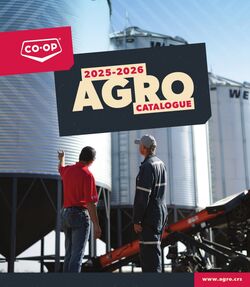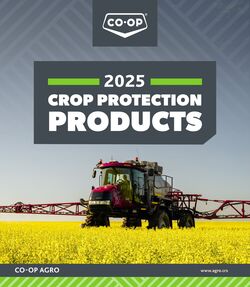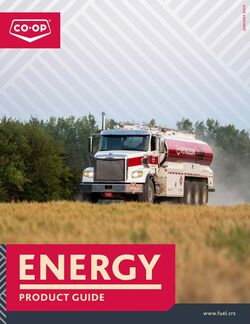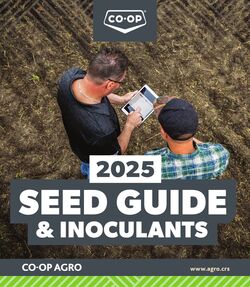













Products in this flyer
and Alberta — will potentially pay growers premiums for certain varieties of à given pulse, or for higher protein levels “ft would be a real win if we get to the point where pulses are an inclusion ingredient, where we can combine them into different products to improve protein levels, and overall health benefits,” says Semeniuk. To help this along, current research and technology are being developed to optimize all aspects of integrating pulses into consumer foods. Production Considerations Semeniuk considers pulses to be “fantastic rotational crops' for myriad reasons Their ability to produce sufficient nitrogen for healthy growth, for example, means lower input costs. The disease cycles of other crops can be stopped. Significant volumes of carbon can also be sequestered “For the net-zero goal and 30 per cent fertilizer emission reduction we're facing, pulses alone are a big factor in helping us go down that road," he says. Mowchenko agrees. “There are definite nutrient benefits to adding pulses to your rotation." Successfully growing pulses requires careful preparations, however. “Field selection needs to be right. It needs to be relatively clean because pulses are not the greatest competitors early on. There's also harvestability. Fields need to be rolled and free of rocks,” says Semeniuk There are chemical considerations, too. Pulses are very sensitive to some active ingredients, meaning residues from previous applications with those actives pose serious risks. Pulses do not benefit from herbicide-resistance genetics either, meaning the conveniences of in-season glyphosate applications are not possible. Overall, thisnecessitates more strategic planning, as well as knowledge of herbicide breakdown rates “We can help growers understand the pros and cons of seed treatments to help manage any soil-borne diseases or insects, and to provide the best possible weed control options from preseeding to in-crop,” says Mowchenko. “We're here to answer any questions a grower might have from start to finish." More information about pulse production and agronomy, as well as research, is available through the provincial pulse grower associations of Alberta, Saskatchewan and Manitoba, as well as Pulse Canada and other sources. Your local Co-op Grow Team member can help you use that information, paired with an understanding of your farm operation, to help you make successful decisions for every growing season. Contact your Local Co-op Agro Centre today. SPP NNN FI S'S HERE FOR LA EL ES HERE FOR YOUR FAMILY.
| Name | Details |
|---|